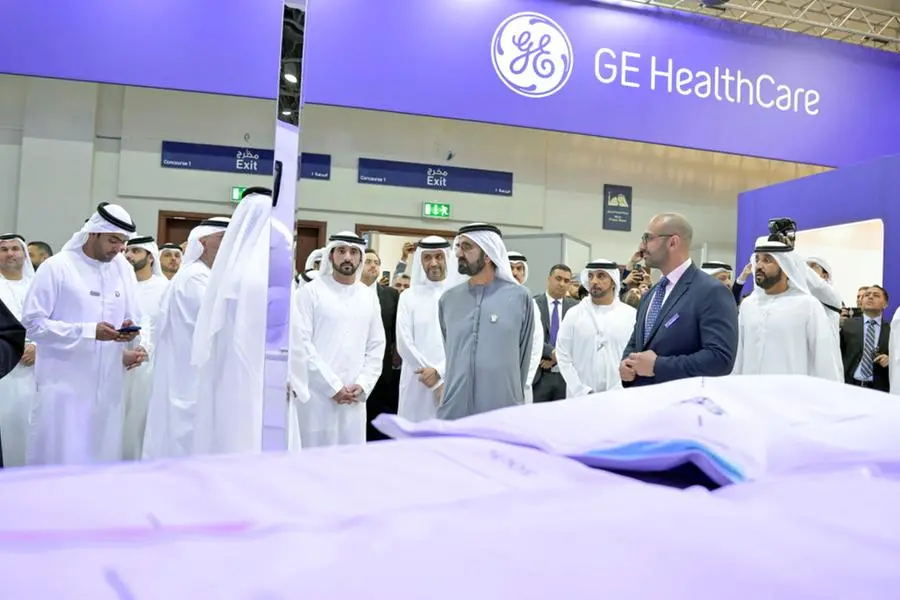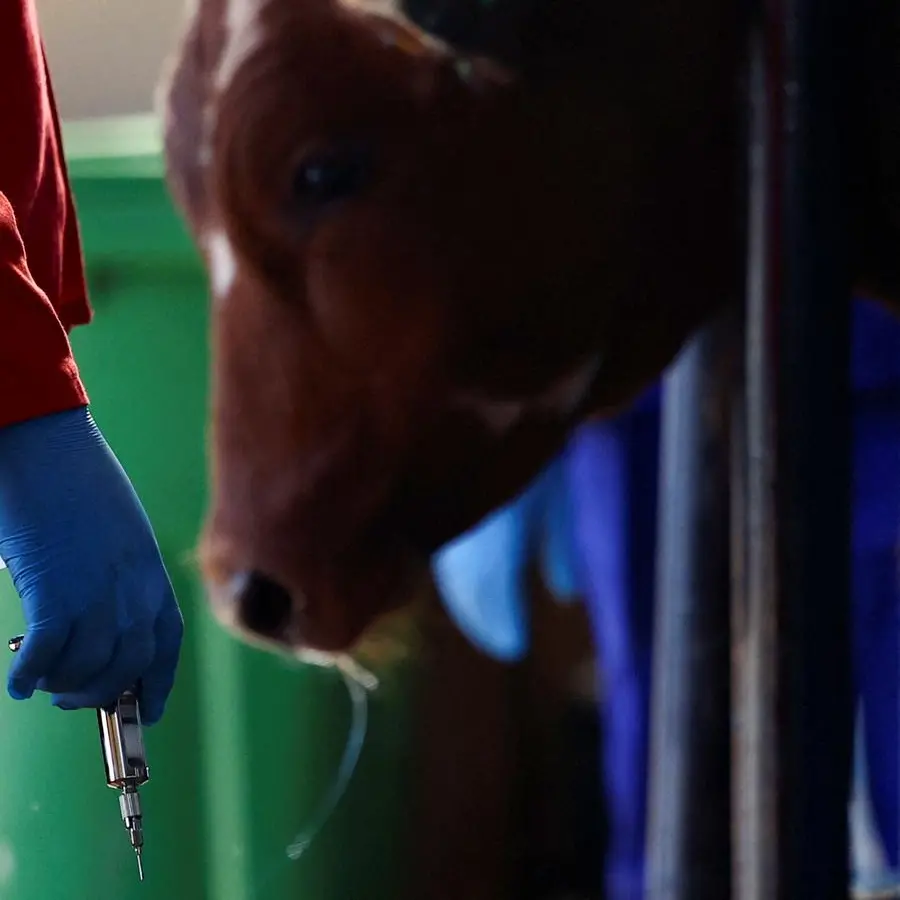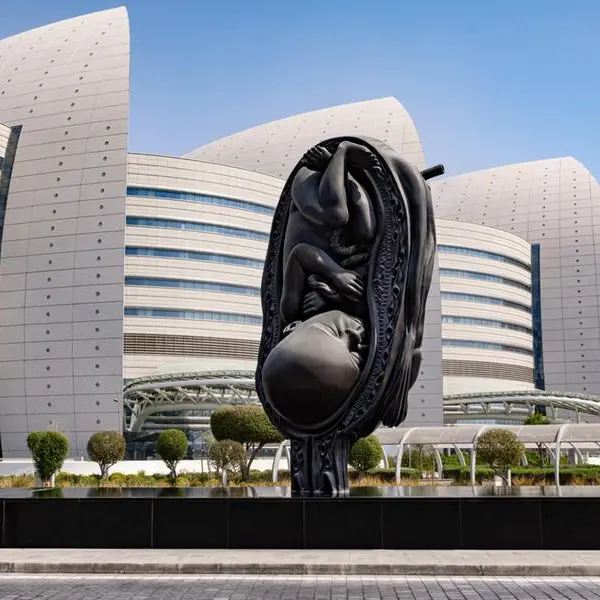PHOTO
The pandemic demonstrated that healthcare systems cannot remain stagnant and must quickly adapt to evolving needs. It is perhaps unsurprising that this need for evolvement and rapid transformation were key sentiments at this week’s Arab Health 2023, an annual Dubai-based event dubbed by organisers as the largest exhibition and congress for healthcare and trade professionals in the Middle East and North Africa (MENA).
If the packed venue at the Dubai World Trade Centre was anything to go by, the business of healthcare is well worth monitoring. A passive approach to medicine is simply no longer an option in this current climate.
“Every country in the world has realised that, as a result of [the pandemic], innovation isn’t just a luxury anymore,” said Gerard Hanratty, partner at Browne Jacobson who advises the UK’s National Health Service (NHS) on public law. Appearing on a panel hosted by Dubai Science Park, he added: “Innovation is a necessity. If you’re not going to innovate, then you’re going to have a real problem going forward.”
The numbers back the fact that the region is getting behind new ideas. For instance, in a newly released report by the Dubai Healthcare City Authority, the MENA’s healthtech startup ecosystem is currently valued at over $1.5 billion, a 22x increase since 2016.
However, spending remains on the rise, and is expected to continue to do so due to factors such as population growth, higher life expectancy, and an increase in lifestyle illnesses and non-communicable diseases. The same report projects that healthcare spending in the GCC will grow at a CAGR of 4.9% to $99.6 billion in 2023 (from $86.2 billion in 2020), with the UAE and Saudi Arabia accounting for approximately 80% of the total. This highlights the need for preventative care to ensure sustainability in the long run.
Touching upon the importance of technology and data for preventive care, Hanratty added: “The patient experience is going to improve, and we’re going to move from ‘sick’ care to ‘health’ care; proper preventative care.”
Using data to improve health outcomes… and reduce costs
So which areas are being heavily invested in the UAE that communities should pay attention to? First, we’re seeing a much more refined data-centric approach to healthcare.
For example, data is crucial to value-based healthcare (VBHC), a delivery framework that rewards healthcare providers for providing quality medical services to patients rather than quantity.
The Dubai Health Authority (DHA) is fully backing this concept with EJADAH, a VBHC model first announced in June last year that seeks to build on services and preventive care, leading to better public health and reduced expenditure. Using artificial intelligence (AI), EJADAH uses data to predict early intervention to either prevent disease or at least avoid further complications caused by a disease.
During Arab Health 2023, the DHA revealed it is to introduce a VBHC model across 30 disease areas for the emirate by 2025. These include asthma, diabetes, chronic obstructive pulmonary disease (COPD), polycystic ovary syndrome (PCOS), and renal failure.
Dr. Mohamed Farghaly, a family medicine consultant and EJADAH lead at the DHA, stated that by “implementing an ecosystem that focuses on preventive care and patient-centred care”, the cost of managing non-communicable diseases can be reduced “significantly”.
Increased connectivity
Tying into data, we’re closer to achieving a national electronic health record (EHR) across the United Arab Emirates with the integration of Abu Dhabi’s Malaffi and Dubai’s Nabidh platforms into the central national unified medical record program called Riayati.
According to the Ministry of Health and Prevention (MoHAP), Riayati has so far gathered 1.9 billion medical records for 9.5 million patients, which can be accessed by over 90,000 health service providers in 3,057 medical facilities.
But why does this matter? A national EHR allows for clinics and hospitals to access patients’ data in real-time, meaning they can instantly learn about an individual’s pre-existing conditions, previous related medical tests and so on. In addition to being potentially lifesaving in some cases, a nationwide EHR increases efficiency and reduces costs.
“The integration is a step in the right direction towards enhancing community health and safety,” said Dr. Hamed Ali Al Hashemi, advisor to the chairman of DoH.
Wearables for better health
Once considered merely a wellness device, wearables have now evolved with a multitude of products entering clinical territory.
According to Market Data Forecast, the wearable medical devices market in the Middle East and Africa (MEA) is estimated to be worth $896.76 million by 2027, from $389.17 million in 2022.
When used correctly, these devices can keep patients accountable and improve their health outcomes.
Ali Hashemi is co-founder and CEO of the hybrid digital therapeutics company, Meta[bolic]. It runs GluCare.Health, an integrative diabetes centre that combines traditional physical care with ongoing digital care including remote patient monitoring.
Speaking on a panel, he explained how patients who opted for continuous monitoring saw dramatic improvements in health markers compared to those who opted for a traditional care model.
AI and machine learning
No surprises here; AI was a major topic of discussion at Arab Health 2023.
Fresh off their announcement of their merger in October, Abu Dhabi’s Mubadala Health and G42 Healthcare, an AI-focused healthtech company, enjoyed a strong presence at the conference, announcing several strategic partnerships during the four-day event.
Elsewhere, Emirates Health Services (EHS) launched Care AI, a smart healthcare facility supported by AI for self-monitoring and tracking patient behaviour.
Marwan Abdulaziz Janahi, senior vice president of Dubai Science Park, explained why organisations are backing AI at the moment.
“As we already know and are seeing, AI offers phenomenal opportunities in the region’s healthcare sector,” he said. “Given its ability to make faster decisions, AI can manage various types of problem-solving on behalf of the medical professional, which in turn allows for more time to be dedicated to other processes, such as doctor-patient interaction.
Janahi continued: “As a result, not only can AI improve efficiency and hence the cost of care, it can also provide better outcomes. As we saw at Arab Health this year, it is an incredibly exciting space to be in right now.”
But should healthcare professionals fear it? Will primary care physicians become obsolete?
Definitely not, stated Amine Staali, co-founder and CEO of medical devices innovation company, ProvenMed.
“In the future, the hospital will be at my home. It will feature the equipment that monitors what is going on with me, and AI can manage this,” he said, adding that healthcare professionals bring the “human element” of emotional empathy, for example.
For Hashemi, the trend is no longer AI itself, but the “commoditisation of AI”.
“The gating factor and building better models is [dependent on the] cost of electricity, right? So, if you want to build your own ChatGPT model, you’re going to spend millions of dollars just in power to fund the computational iterations just to train that model,” he explained.
“The tools will continue to evolve; what we’re starting to see and trying to drive, is this narrative around the unification of these tools into platforms that translate the tools into an outcome. Is there an ROI that we can attach to that at a societal level?”
Health insurance will need to evolve sooner
And finally, one that perhaps local health insurance providers should take note of. A common theme throughout the conference was the agreement that health insurance providers are not keeping up with transformation or even offering quality premiums.
Hashemi said: “Insurance companies, at least in this part of the world, are not very evolved. [In the future], some will [remain operational], while the rest will go out of business.
“Ultimately, and this is way down the road, we, as a society, are going to figure out a new model of insurance that deals only with low probability events [such as emergencies]. And then we’ll find a way to create payment mechanisms that are value-based and performance-driven to own the risk around the management of chronic disease. And only that will reverse this upward trend on healthcare costs that we’re seeing all over the world,” he said.
“There is a significant gap between innovators and the payers, in this case the insurers,” added Staali. “We need to have continuous discussions [in order to align]. We are innovating and disrupting solutions and technologies for the main purpose of helping people to be better and healthier. And as a result, reducing the cost of insurance [in the long run].”
(Reporting by Rachel McArthur; editing by Seban Scaria)





















